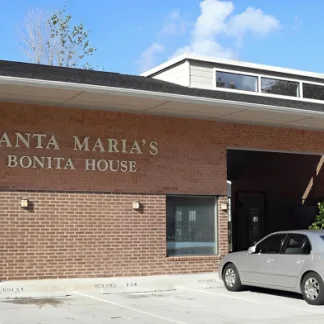Eudaimonia Recovery Homes Houston
Nova Recovery Center - Old Oaks Ranch offers a continuum of care for individuals...
Santa Maria Hostel–Bonita House is a comprehensive drug and alcohol rehab for women in Houston, Texas. They provide dual diagnosis care, medically supervised detox, and inpatient, outpatient, and aftercare services. Dedicated programming is available for pregnant and postpartum women, women with children, young adult women, and women with hearing impairments.
Santa Maria Hostel–Bonita House, in Houston, Texas, provides full-service addiction treatment for adult women, including medically supervised detox, intervention and stabilization services, and inpatient, outpatient, and aftercare programming. They also offer dedicated services for pregnant and postpartum women, women with children, young adult women, women with hearing impairments, and women with co-occurring addiction and mental illness.
Clients undergoing detox receive round-the-clock medical supervision and may be prescribed FDA-approved medications to ease withdrawal symptoms and prevent potentially serious complications.
The inpatient program allows clients to focus on their recovery in a highly supportive and structured environment. Clients receive medical and mental health assessments, personalized care plans, and comprehensive case management. They also engage in intensive, trauma-informed individual, group, and family counseling. The program prioritizes independent living and recovery-focused life skills training, including courses in self-care, coping, anger and stress management, parenting, job readiness, financial and household management, and relapse prevention.
The outpatient program promotes clients’ sustained recovery through a robust continuum of care aligned with clients’ evolving needs. Their step-down approach encompasses multiple levels of care, including intensive outpatient (IOP), standard outpatient, and sober living. Aftercare services may include peer coaching, career counseling, 12 step program induction, employment, housing and childcare assistance, and referrals for medical, mental health, and social service programs.
Santa Maria Hostel–Bonita House accepts Medicaid, financing, and self-pay. Sliding scale payment assistance is available.
Contact us for more information: (713) 691-0900

Connect with Santa Maria Hostel - Bonita House by calling their admissions team directly.
(713) 691-0900 Website Get DirectionsGroup therapy is any therapeutic work that happens in a group (not one-on-one). There are a number of different group therapy modalities, including support groups, experiential therapy, psycho-education, and more. Group therapy involves treatment as well as processing interaction between group members.
Trauma therapy addresses traumatic incidents from a client's past that are likely affecting their present-day experience. Trauma is often one of the primary triggers and potential causes of addiction, and can stem from child sexual abuse, domestic violence, having a parent with a mental illness, losing one or both parents at a young age, teenage or adult sexual assault, or any number of other factors. The purpose of trauma therapy is to allow a patient to process trauma and move through and past it, with the help of trained and compassionate mental health professionals.
Trauma therapy addresses traumatic incidents from a client's past that are likely affecting their present-day experience. Trauma is often one of the primary triggers and potential causes of addiction, and can stem from child sexual abuse, domestic violence, having a parent with a mental illness, losing one or both parents at a young age, teenage or adult sexual assault, or any number of other factors. The purpose of trauma therapy is to allow a patient to process trauma and move through and past it, with the help of trained and compassionate mental health professionals.
Nova Recovery Center - Old Oaks Ranch offers a continuum of care for individuals...
Volunteers of America is a non-for-profit, traditional rehab located in Houston,...
Riverside General Hospital Houston Recovery Campus is a non-profit rehab located...
AA – Alcoholics Anonymous – Aldine Group is a non-profit rehab located in Housto...